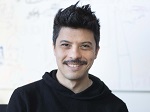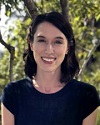Perception Research in Augmented Reality and Virtual Reality
Perception Research in Augmented Reality and Virtual Reality
06 May 2022 12:00 - 13:00
Eastern Time (US & Canada) (UTC -05:00)The virtual panel will discuss the development of augmented reality and virtual reality system and the guidelines on display design based on human vision perspective. The target audience of this event is for individuals who are interested in AR|VR and/or work in the field of visual science and graphic rendering
About the Panelists:
 Dr. Nathan Matsuda; Research Scientist at Meta
Dr. Nathan Matsuda; Research Scientist at Meta
Title of Presentation: Reverse Passthrough VR
Dr. Nathan Matsuda is a research scientist at Meta developing computational camera and display systems that support immersive visual experiences in AR/VR. Prior to joining Meta, Nathan was a PhD student in Prof. Oliver Cossairt’s computational photography lab at Northwestern University. Before that, he worked as a television visual effects artist and supervisor.
 Dr. Emily Cooper; Professor at University of California, Berkeley
Dr. Emily Cooper; Professor at University of California, Berkeley
Title of Presentation: Perceptual Guidelines for Optimizing Field of View in Stereoscopic Augmented Reality
Dr. Emily Cooper is an Assistant Professor of Optometry and Vision Science at the University of California, Berkeley. She is co-Director of the Center for Innovation in Vision and Optics, and a member of the Helen Wills Neuroscience Institute. Her research focuses on understanding human visual perception, with an emphasis on 3D vision and perception of stereoscopic displays.
 Kelly Peng; Founder, CEO, and CTO of Kura Technologies
Kelly Peng; Founder, CEO, and CTO of Kura Technologies
Title of Presentation: Ultra High-Performance AR Glasses and Platform
Kelly Peng is the founder, CEO & CTO of Kura Technologies, a company that is making the best performing augmented reality glasses and platforms for global telepresence. Kura's first product Kura Gallium - is solving the biggest industry mass adaption bottleneck through a performance of 150° field of view, 95% see-through, high brightness, 8K resolution, and come in a compact form factor. Kura's performance is achieved through a series of inventions, innovations, and designs for the manufacturing process, that includes fully customized displays (Micro-LED), multiple customized ASICs, customized optics, system integrations, and ergonomic design. Kura has 40 people on the team now, HQ in Bay Area, and is a winner of both CES 2022 Innovation Award, and the Best of CES award. In the past, Kelly had worked on customized frequency-modulated LIDAR with mixed-signal ASICs at UC Berkeley, worked on customized EEG and MEG sensors, and machine learning-based like-dislike detection algorithm for brain-computer interfaces with the world's highest accuracy ever achieved with projects exhibited at the San Francisco Exploratorium for 3 months, and also built a nuclear fusion reactor in the garage. Kelly studied Electrical Engineering and Computer Science at UC Berkeley and UIUC, and is one of the Forbes 30 under 30 in Manufacturing and Industry.
